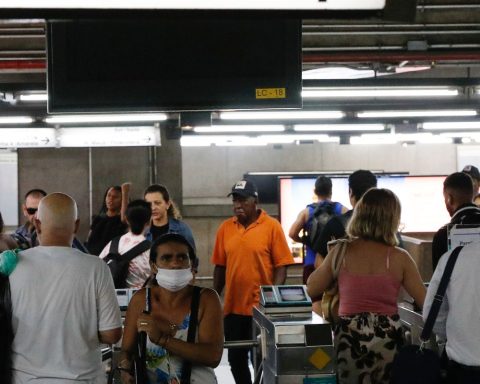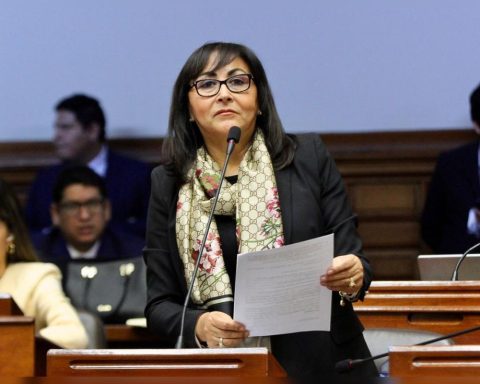The public accounts closed the month of August with a negative balance, mainly as a result of the increase in expenses with payment of court orders by the National Treasury. The consolidated public sector, made up of the Union, states, municipalities and state-owned companies, recorded a primary deficit of R$30.279 billion last month, compared to a primary surplus of R$16.729 billion in August 2021.
The data were released today (30) by the Central Bank (BC). The primary deficit represents the negative result of the public sector accounts (expenditure minus revenue), disregarding the payment of interest on the public debt.
In the 12 months ended in August, the accounts accumulated a primary surplus of R$ 183.546 billion, which corresponds to 1.97% of the Gross Domestic Product (GDP, the sum of all goods and services produced in the country). In the year, from January to August, there is a surplus of R$ 120.056 billion, compared to a positive result of R$ 1.237 billion in the same period last year.
The target for this year’s public accounts, defined in Budget Guidelines Lawis a primary deficit of R$ 177.5 billion for the consolidated public sector.
In 2021, public accounts closed the year with primary surplus of R$ 64.7 billion, 0.75% of GDP. It was the first year of positive results in the public sector accounts, after 7 years of deficit. In 2020, public accounts had a record primary deficit of BRL 702.950 billion, 9.41% of GDP, due to spending on the covid-19 pandemic.
isolated data
Last month, the Central Government (Welfare, Central Bank and National Treasury) presented a primary deficit of BRL 49.773 billion compared to the BRL 11.092 billion deficit in August 2021. The explanation is that expenses grew more than revenues in August .
Revenues grew 8% in real terms, around R$10 billion, driven by the receipt of dividends from state-owned companies, which paid around R$6 billion to the Union. Expenses, on the other hand, had a greater increase, of 36%, around R$ 50 billion, with a significant contribution from the payment of precatories, in the month, around R$ 25 billion. Precatórios are debts contracted by governments, in all spheres, when they are condemned in the final instance by the courts to pay individuals or legal entities.
In August, the National Treasury also paid BRL 23.9 billion referring to the agreement that extinguished the debt of around BRL 24 billion of the São Paulo City Hall with the Federal Government. In return, the municipality closed the lawsuit that questioned the control of Campo de Marte airport, in the capital of São Paulo, which is under the control of the federal government.
According to the head of the BC Statistics Department, Fernando Rocha, this amount impacts the isolated results of the Central Government and municipal governments, but when looking at the consolidated public sector, it is neutral, since it enters as an expense for an entity. and as a recipe for the other.
“This operation helps to explain why the Central Government had a high deficit and the regional governments had a surplus. The Federal Government received a new asset, a property, a non-financial asset that does not enter the net debt statistics, but the payment of this asset in the form of a reduction in indebtedness caused it to reduce another Central Government asset. [a dívida do município de São Paulo]. The impact on the municipality is the opposite, it lost a non-financial asset and reduced a liability that was its debt with the Union”, he explained.
The amount of the Central Government deficit differs from the result released yesterday (29) by the National Treasury, deficit of BRL 49.972 billion in Augustbecause, in addition to considering local and state governments, the BC uses a different methodology, which takes into account the variation in the debt of public entities.
State governments had a deficit last month, recording BRL 4.404 billion, compared to a surplus of BRL 23.479 billion in August 2021. According to Rocha, the comparison base for August 2021 is high because, in that month, the state of Rio de Janeiro received extraordinary resources from the concession of the State Water and Sewage Company (Cedae).
Municipal governments, on the other hand, recorded a surplus of R$ 22.929 billion in August this year, as a result of the operation of the Union and the municipality of São Paulo involving Campo de Marte. In the same month of 2021, the surplus was BRL 3.859 billion for these entities.
According to Rocha, there was a drop in the collection of these entities, mainly the Tax on Circulation of Goods and Services (ICMS), which had a variation of almost 10% from last year to now. On the other hand, regular transfers from the federal government within the scope of tax sharing and other federal regulations grew 13.7%, a natural result of the increase in federal revenue.
Federal, state and municipal state-owned companies, excluding those of the Petrobras and Eletrobras groups, had a primary surplus of R$970 million last month.
interest expenses
Interest expenses stood at BRL 35.628 billion last month, against BRL 42.939 billion in July and BRL 46.467 billion in August 2021. According to Rocha, there are the effects of Central Bank operations on the foreign exchange market (currency swap, which is the sale of dollars in the futures market), which, in this case, contributed to the improvement in the interest rate account last month. The results of these operations are transferred to the payment of interest on the public debt, as income, when there are gains, and as expenses, when there are losses.
Last month, the swaps account had gains of R$ 11.3 billion. In August 2021, the BC had losses of BRL 7.6 billion. There is also the impact of the fall in the National Broad Consumer Price Index (IPCA), official inflation, in recent months, which contributed to the reduction of interest rates.
The nominal result, formed by the primary result and interest expenses, increased. In August, the nominal deficit was BRL 65.907 billion, against a negative result of BRL 29.739 billion in the same month of 2021. In 12 months, it accumulates a deficit of BRL 392.037 billion, or 4.20% of GDP. The nominal result is taken into account by risk rating agencies when analyzing a country’s indebtedness, an indicator observed by investors.
Public debt
The net debt of the public sector (balance between the total credits and debts of the federal, state and municipal governments) reached R$ 5.435 trillion in August, which corresponds to 58.2% of GDP. In July, the percentage of net debt in relation to GDP was 57.8%.
In August 2022, the gross debt of the general government (GDBG) – which only accounts for the liabilities of the federal, state and municipal governments – reached BRL 7.231 trillion, or 77.5% of GDP, against 78.2% (BRL). 7.217 trillion) in the previous month. Like the nominal result, gross debt is used to draw international comparisons.

















